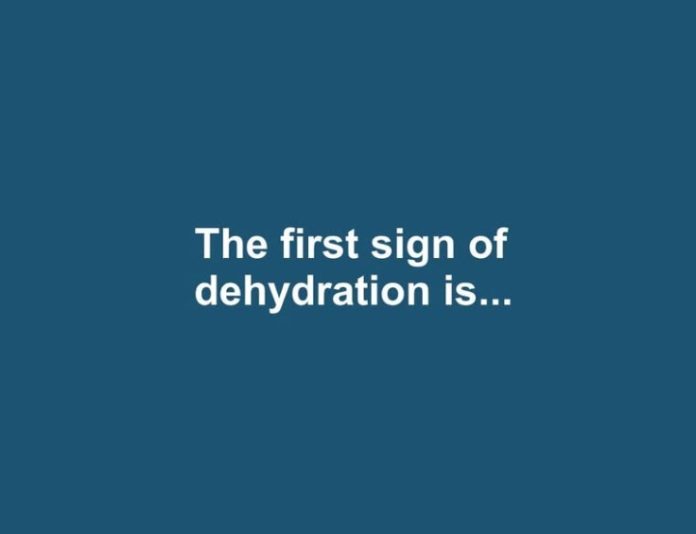In our fast-paced lives, it’s easy to overlook one of the most vital aspects of our health: hydration. Dehydration occurs when the body loses more fluids than it takes in, leading to an insufficient amount of water necessary for normal physiological functions. While anyone can experience dehydration, it poses a particular risk to young children and older adults. Understanding the signs and symptoms of dehydration is crucial for maintaining health and preventing complications. This article will explore the importance of hydration, common causes of dehydration, early signs to watch for, and practical tips for staying hydrated.
The Importance of Hydration
Hydration is essential for maintaining the delicate balance of bodily fluids, which play a critical role in various physiological processes. These include:
- Digestion: Water is necessary for breaking down food and absorbing nutrients.
- Circulation: Fluids are vital for transporting oxygen and nutrients to cells and removing waste products.
- Temperature Regulation: Proper hydration helps maintain body temperature through sweating and respiration.
- Cognitive Function: Adequate hydration supports mental clarity, focus, and overall cognitive performance.
Without sufficient water intake, these processes can be disrupted, leading to adverse health effects such as fatigue, confusion, and even more severe medical conditions.
Common Causes of Dehydration
Understanding the factors that contribute to dehydration can help you take preventive measures. Some common causes include:
- Excessive Sweating: Physical activities, especially in hot weather, can lead to significant fluid loss.
- Fever: Elevated body temperature increases fluid requirements.
- Vomiting and Diarrhea: Gastrointestinal illnesses can rapidly deplete the body’s fluid reserves.
- Increased Urination: Conditions like diabetes or certain medications can cause frequent urination, leading to fluid loss.
- Environmental Factors: Hot climates, high altitudes, and prolonged sun exposure can exacerbate dehydration.
Recognizing these causes can help you stay vigilant, particularly during high-risk situations.
Recognizing the Early Signs of Dehydration
Early detection of dehydration is crucial for preventing its progression to more severe stages. Initial signs can be subtle and easily overlooked, but recognizing them can help you take timely action to restore fluid balance. Some early signs to watch for include:
- Thirst: The body’s natural signal indicating the need for more fluids.
- Dry Mouth: A sticky sensation in the mouth can indicate dehydration.
- Fatigue: Feeling unusually tired or lethargic may be a sign of inadequate hydration.
- Decreased Urine Output: Less frequent urination, especially if the urine is dark in color, can indicate dehydration.
The First Sign of Dehydration: Thirst
Thirst is often the first and most immediate sign of dehydration. It serves as the body’s natural alert system, prompting individuals to drink water before dehydration becomes more severe.
How Thirst Signals the Body’s Need for Water
Thirst is regulated by the hypothalamus, a part of the brain that monitors the body’s fluid balance. When the body detects a decrease in fluid levels or an increase in the concentration of solutes in the blood, it triggers the sensation of thirst. This physiological response encourages individuals to consume fluids to restore equilibrium.
Other Early Symptoms Accompanying Thirst
Alongside thirst, other early symptoms of dehydration may include:
- Dry or Sticky Mouth: A clear indication that the body needs more fluids.
- Reduced Urine Output: Darker urine can signify dehydration as the body attempts to conserve water.
- Fatigue and Lightheadedness: These symptoms may indicate that the body is beginning to conserve water and prioritize essential functions.
The Science Behind Thirst and Dehydration
The science of thirst involves complex interactions between the brain, kidneys, and various hormones. When dehydration begins, the body releases antidiuretic hormone (ADH) to reduce urine production and conserve water. Meanwhile, the sensation of thirst drives behavior to increase fluid intake, helping to restore homeostasis.
Preventing Dehydration Through Proper Hydration
Preventing dehydration is achievable with conscious efforts to maintain adequate fluid intake throughout the day. Here are some practical tips:
- Regular Water Intake: Aim to drink water consistently, rather than waiting until you feel thirsty. Carry a water bottle to remind yourself to hydrate.
- Incorporate Hydrating Foods: Foods such as fruits (watermelon, oranges) and vegetables (cucumbers, lettuce) contain high water content and contribute to overall hydration.
- Monitor Environmental Conditions: Be mindful of weather conditions and adjust your fluid intake accordingly, especially during hot or dry climates.
- Limit Caffeine and Alcohol: Both substances can lead to increased fluid loss, so it’s essential to balance them with additional water.
When to Seek Medical Attention for Dehydration
While mild dehydration can often be managed by increasing fluid intake, severe dehydration requires immediate medical attention. Signs of severe dehydration include:
- Extreme Thirst: An overwhelming need for fluids that doesn’t subside with drinking.
- Confusion or Dizziness: Mental disorientation can indicate significant fluid loss.
- Rapid Heartbeat: An increased heart rate may signal dehydration affecting cardiovascular function.
- Sunken Eyes: A physical sign of dehydration that can indicate a serious condition.
- Fainting: Losing consciousness is a critical sign that medical intervention is necessary.
If you or someone you know exhibits these symptoms, it is crucial to seek medical care promptly to prevent serious complications.
Conclusion:
Staying Hydrated for Optimal Health
Staying hydrated is essential for maintaining health and preventing dehydration-related complications. By recognizing the early signs of dehydration, such as thirst, and taking proactive measures to ensure adequate fluid intake, individuals can support their body’s functions and promote overall well-being. Remember, hydration is a key component of a healthy lifestyle.
Incorporating these practices into your daily routine can help you stay ahead of dehydration, ensuring that your body remains well-hydrated and functioning optimally. By understanding the importance of hydration and being vigilant about the signs of dehydration, you can take control of your health and enjoy a vibrant, active life.










